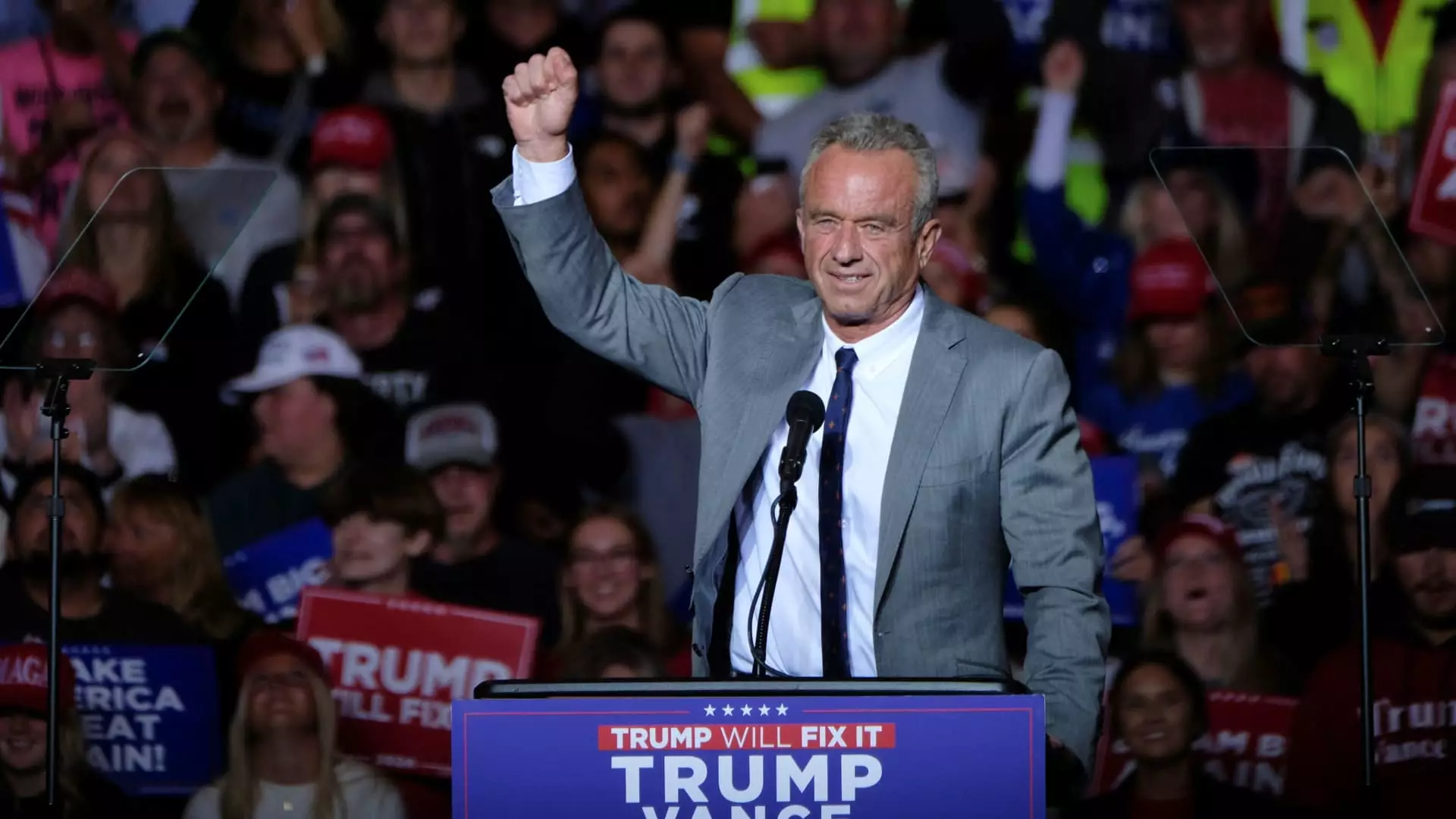The recent trading session highlighted significant movements in the stock prices of dental care suppliers, notably Henry Schein. Investors are responding optimistically to the potential for drastic changes in public health policy under the incoming Trump administration, particularly with Robert F. Kennedy Jr. as a leading candidate for the role of Secretary of Health and Human Services. This political appointment has stirred conversations surrounding fluoride use in public drinking water, a subject that has been contentious and polarizing in recent years. The speculation suggests that Kennedy might advocate for the removal of fluoride from public water systems, leading to increased dental healthcare visits and a subsequent rise in revenues for dental care companies.
Henry Schein’s stock value surged by nearly 5%, signaling investor confidence in the potential demand for dental services should fluoride be eliminated. Other similar companies such as Dentsply Sirona and Envista also experienced slight gains in their share prices. This phenomenon exemplifies how political appointments and proposed health policies can have direct ramifications on corporate performance, particularly in niche markets like dental care.
Fluoride’s role in public health has always been a double-edged sword. While numerous studies underscore its efficacy in reducing cavities, public sentiment has been divided, leading some communities to abolish fluoridation programs entirely. Kennedy’s announcement on social media prior to the election hinted at a policy shift that many view as a potential catalyst for increased dental issues in communities that might rely solely on fluoride for oral health. Advocates for fluoride argue against its removal, emphasizing the importance of this mineral in maintaining oral hygiene and preventing tooth decay.
As Kennedy’s potential nomination stirs excitement in the dental care sector, it also raises questions on the broader implications of such public health adjustments. Investors anticipate a significant uptick in the need for dental services should fluoride be removed, thus creating a directly correlated opportunity for businesses in the dental hygiene space. The perspective of analysts such as Don Bilson from Gordon Haskett indicates a belief that Kennedy’s influence may sway federal health policies toward reduced fluoridation, inadvertently leading to higher demand for dental products and services.
While Henry Schein flourished on the heels of this news, the wider healthcare sector reflected a contrasting sentiment. The Health Care Select Sector SPDR Fund (XLV) has experienced declines, with a noted drop of about 3.5% in November, indicating a broader market reaction to the implications of Kennedy’s health policies. Unlike dental stocks, which have emerged relatively unscathed, pharmaceutical companies faced selling pressure due to Kennedy’s notoriety as a vaccine skeptic. His stance on vaccines, combined with his perceived approach to public health, has led investors to reassess risk in the broader healthcare landscape, which has faced scrutiny as the administration prepares to make policy changes.
The apprehension surrounding processed food stocks reflects a similar sentiment, where concerns over potential regulatory adjustments related to health and wellness have led traders to react with caution. This widespread impact demonstrates that while certain sectors may benefit, others may suffer due to shifts in policy focus.
Although immediate investor excitement is palpable, analysts are quick to remind stakeholders that regulatory changes can be slow-moving processes. Despite the immediate impact on dental care stocks, it may take years before any substantive changes to fluoride policies are enacted. Moreover, the oversight of water fluoridation typically falls under the jurisdiction of the Environmental Protection Agency (EPA), rather than the Department of Health and Human Services, which suggests that any proposed changes will likely be met with procedural hurdles.
As stakeholders continue to monitor the incoming administration’s health policies, the intricate relationship between political climate and market performance will remain crucial. The dental care sector may find itself in an interesting position: while immediate boosts in stock prices signify investor optimism, the long-term sustainability of this trend will hinge upon the actual implementation and effects of proposed changes in public health policies. The evolution of dental healthcare demand will be an ongoing narrative to observe in the context of evolving regulations and public perceptions in the coming years.

